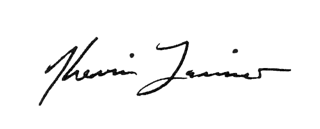Word by Word, the World Is Changed
During a virtual reading and conversation hosted by Poets & Writers in September, Garth Greenwell recalled his beginnings as a poet, before he turned to the novel form that he has executed so exquisitely in three books, including his latest, Small Rain. He referred to an early professor of his, James Longenbach, as “a priest of poetry” who made him feel “like a life devoted to poetry would be the noblest possible life.” I don’t know about nobility, but when I think about how poetry has changed the way I see the world, I tend to agree with Flaubert, who said something along the lines of “God is in the detail” (which spawned another idiom, about a more diabolical presence in the particulars). I think of an evening six years ago when I annoyed my kids by going on at length at dinner about “Threshold Gods,” a poem from Jenny George’s debut collection, The Dream of Reason. In it she describes a bat that is “crawling on its elbows / across the porch” as “a leather change purse / moving across the floorboards.” I never looked at those winged mammals the same way again—and word by word, the world is changed.
In the title poem of his new collection, Forest of Noise, Palestinian poet Mosab Abu Toha distills a world of violence and destruction into two metaphors that, like all powerful metaphors, transcend mere description: A car sliding on an asphalt street is “like an iron running on an ironing board,” and potholes punched into the street by bombs in Gaza are “like crows’ nests in a forest of noise.” That poem, as well as Destiny O. Birdsong’s interview, “The Definition of Poetry,” will remain with me. In their conversation, the poet expands on Coleridge’s definition of poetry, “the best words in their best order,” by adding “at the right time.” For Abu Toha, and for every poet, he urges, that time is now.
Greenwell said something else that resonates: “I am a big fan of being bewildered and being lost and of the idea that you can’t really give advice to writers, because there is no path to being a writer. The only path is pathlessness—getting lost.” It’s true, advice given unconditionally—or taken without first applying it to your own situation—is usually bad advice. As for being lost? It reminds me of something Jonathan Lethem once told me, about how “success” as a writer is fleeting: “You are still just an insecure human animal who likes to try to make things out of words, and every day, if you’re doing it for real, you wake up as confused and helpless and insecure as ever.” So the next time you find yourself on that path of pathlessness, know this: You are not alone.







